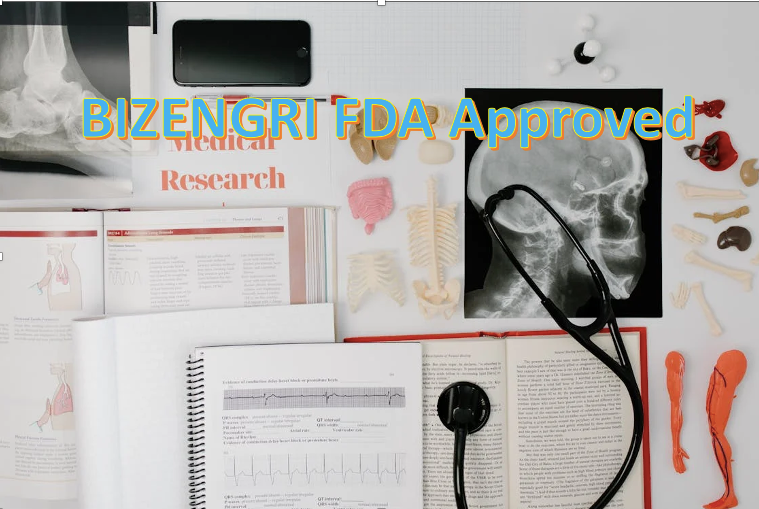Advil Cold and Sinus Plus is a combination of Ibuprofen, Pseudoephedrine, and Chlorpheniramine. It acts to relieve pain, inflammation, congestion, and other allergic symptoms in patients with common cold and hay fever.
Uses:
- Symptoms of the common cold, hay fever, or other respiratory allergies are momentarily relieved by it.
Dose in Adults:
Dose for Common cold, hay fever, respiratory allergies:
- While symptoms last, it can be taken orally as one caplet every four to six hours.
- The maximum that can be given is 6 caplets in 24 hours.
- A treatment regimen of more than 10 days is not advised unless prescribed by a medical professional.
Dose in Children:
Refer to adults dosing.
Pregnancy Risk Category: C/D
- See individual agents (Ibuprofen, pseudoephedrine, and chlorpheniramine)
Use during breastfeeding:
- See individual agents (Ibuprofen, pseudoephedrine, and chlorpheniramine)
Dose in Renal Disease:
Avoid in advanced kidney disease.
Dose in Liver disease:
See individuals agents. NSAIDs should generally be avoided in advanced liver disease because of the risks of gastrointestinal bleeding, hepatorenal syndrome, and fluid retention.
Side effects:
See individual agents.
Contraindications:
- Hypersensitivity to ibuprofen or pseudoephedrine, as well as any component of the formulation is contraindicated.
- It is also not recommended to use it with or within two weeks of MAO inhibitors (MAOI) the last dosage.
- This drug should not be administered before or after coronary bypass surgery (CABG).
Warnings and precautions
-
Anaphylactoid reactions
- An anaphylactoid reaction can occur even if there was no prior exposure.
- Patients who have "Samter's Trilogy" (rhinitis, aspirin intolerance, and bronchial asthma) may be at greater risk.
- Use with caution in patients who have previously had aspirin or NSAID therapy for bronchospasm, asthma, rhinitis, or urticaria.
-
Cardiovascular events
- There is proof that using NSAIDs can make you more likely to experience harmful cardiovascular events including a stroke, MI, or newly developed hypertension.
- A compounded risk exists if there are already existing heart disease.
- Before prescribing the medication, a clinical assessment should be performed on patients who are at higher risk of developing heart disease.
- Aspirin's cardioprotective effect is interrupted if concomitantly used along with ibuprofen, and potentially other nonselective NSAIDs.
- To reduce the risk of heart attacks, it should be compatible with patient goals. Patients at high risk should consider alternative therapies.
-
CNS effects
- It can cause blurred vision, drowsiness and dizziness as well as other neurologic effects that could impair mental or physical abilities.
- It is important to warn patients about tasks that require mental alertness, such as driving or operating machinery.
- If you have blurred or reduced vision, stop using it and conduct an ophthalmologic examination.
- Patients receiving long-term therapy should be evaluated periodically for visual acuity.
-
Events involving the GI
- NSAIDs can increase the risk of GI irritations, inflammation, ulceration and bleeding.
- These events can happen at any moment.
- Individuals who have a history of GI disease, such as bleeding or ulcers, concurrent therapy with aspirin, anticoagulants, and/or corticosteroids, smoking, alcohol usage, being elderly, or patients who are debilitated should exercise caution.
- The lowest effective dose should only be applied for a brief period of time to minimise the possibility of GI adverse events.
- Patients at high risk should consider alternative therapies.
- Aspirin can be used in conjunction with aspirin to increase the likelihood of GI problems like ulcers.
- It is recommended to use concurrent gastroprotective therapy, such as proton pump inhibitors.
- Avoid non-aspirin NSAIDs in patients who have had a history or recent occurrences of lower GI bleeding.
-
Hematologic effects
- Reduced platelet adhesion or aggregation is a possibility. This might make bleeding last longer.
- Patients with pre-existing anticoagulant use or patients with coagulation disorders should be closely monitored.
- Anemia should be checked in patients on long-term NSAID treatment. Rarely, NSAID therapy has been linked to severe blood disorders like thrombocytopenia, agranulocytosis and aplastic anemia.
-
Hyperkalemia:
- NSAIDs can increase the likelihood of potassium elevations in elderly people, diabetics, and those with renal disease.
- Monitor potassium closely.
-
Reactions to skin:
- NSAIDs can lead to skin side effects such toxic epidermal necrolysis, Stevens-Johnson syndrome, and exfoliative dermatitis (EJS). If you get skin rash or hypersensitivity, stop taking NSAIDs.
-
Aseptic meningitis
- Patients with combined connective tissue disorders and systemic lupus erythematosus may experience an increased risk of aseptic meningitis as a result of this (SLE).
Asthma
- NSAIDs shouldn't be administered to asthma patients who are aspirin sensitive.
- There could be severe bronchospasm.
- Patients with additional types of asthma should exercise caution.
-
Bariatric surgery
- Avoid taking nonselective NSAIDs for an extended period of time following bariatric surgery if you have stomach cancer.
- Perforations can happen and anastomotic ulceration is particularly common.
- Celecoxib and IV ketorolac are suggested for short-term use as part of a multimodal pain treatment plan.
-
Coronary bypass surgery for coronary artery bypass graft:
- It is not recommended to be used right before or after coronary bypass graft surgery (CABG).
- The risk of stroke and MI may rise with the use of CABG surgery.
- When you have diabetes, be cautious.
-
Hepatic impairment
- Patients with impaired hepatic function should be treated with caution.
- Be aware of abnormal LFTs. NSAIDs have been linked to severe hepatic reactions such as fulminant hepatitis or liver failure.
- If liver disease symptoms or systemic diseases develop, discontinue use.
-
Hypertension:
- It may cause newly developing hypertension or exacerbate an ailment that already exists.
-
Glaucoma/increased intraocular pressure
- Glaucoma is a condition that can be caused by increased intraocular pressure, angle-closure, or other eye conditions.
-
Prostatic hyperplasia/Urinary Obstruction:
- Patients suffering from BPH or obstruction of the bladder should be treated with caution.
-
Renal impairment
- NSAIDs can cause impairment of existing renal function. The drug causes a dose-dependent decrease in prostaglandin production. NSAIDs decrease renal blood flow, further deteriorating renal function.
- Renal damage is more likely to occur in elderly people and those with chronic kidney disease, heart failure, liver dysfunction, diuretics, and ACE inhibitors.
- Keep an eye on RFTs and ensure that one is hydrated.
- It is not recommended in ESRD.
- If it is used long-term, it can cause renal papillary necrosis.
-
Thyroid disease:
- Patients with thyroid disease should be cautious.
Monitoring Parameters:
None mentioned.
How to administer?
It may be administered with food or milk if stomach upset occurs.
Mechanism of action:
See individual agents (Ibuprofen, pseudoephedrine, and chlorpheniramine)
International Brand Names of Ibuprofen, pseudoephedrine, and chlorpheniramine:
- Advil Allergy Sinus
- Advil Multi-Symptom Cold
- Advil Cold and Sinus Nighttime
- Advil Cold and Sinus Plus
- Children's Advil Cold and Flu MultiSymptom
- Finagrip
- Ibupirac Grip
Ibuprofen, pseudoephedrine, and chlorpheniramine Brand Names in Pakistan:
No Brands Available in Pakistan.

 Injection for familial chylomicronemia syndrome.jpeg)


